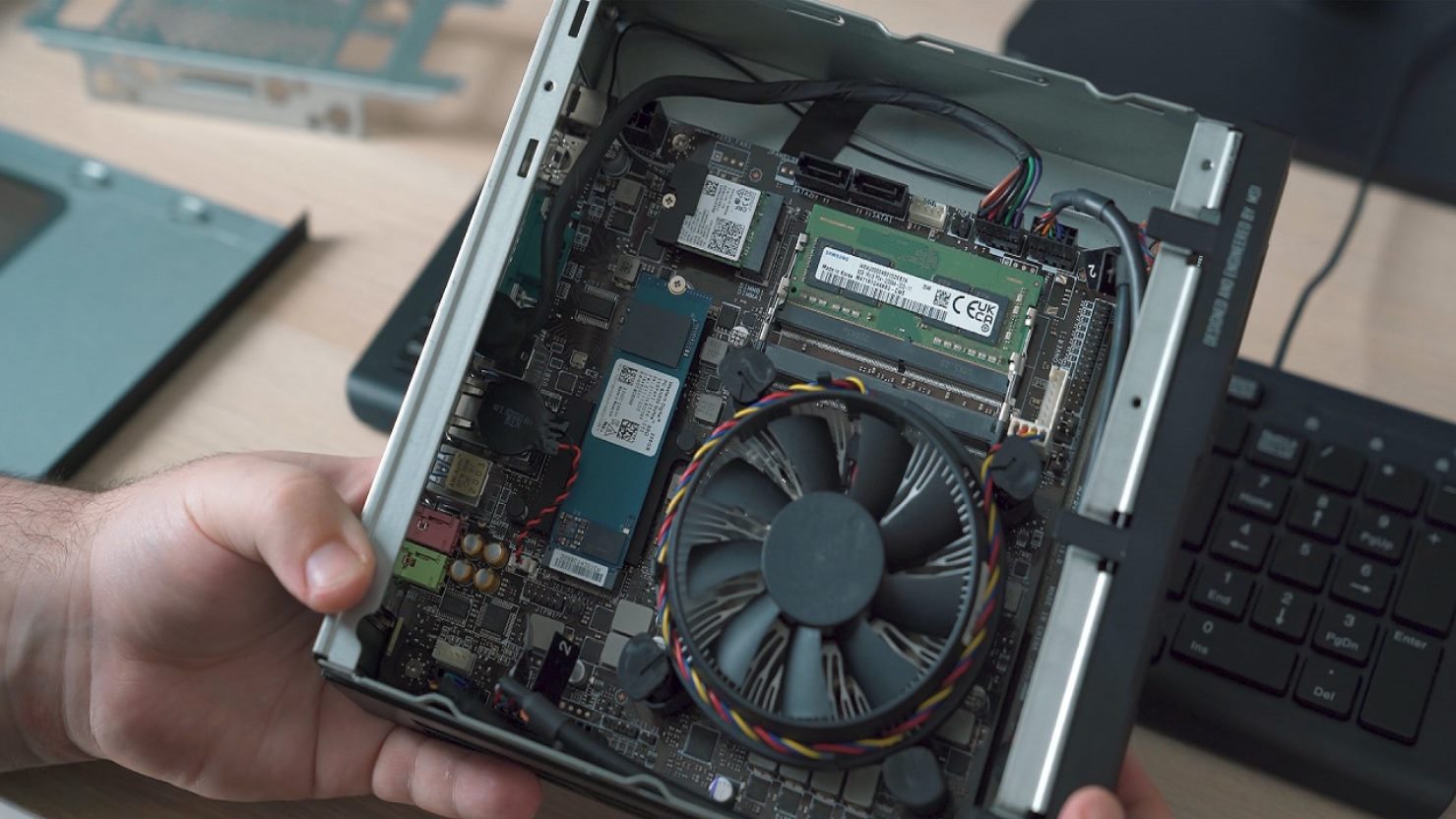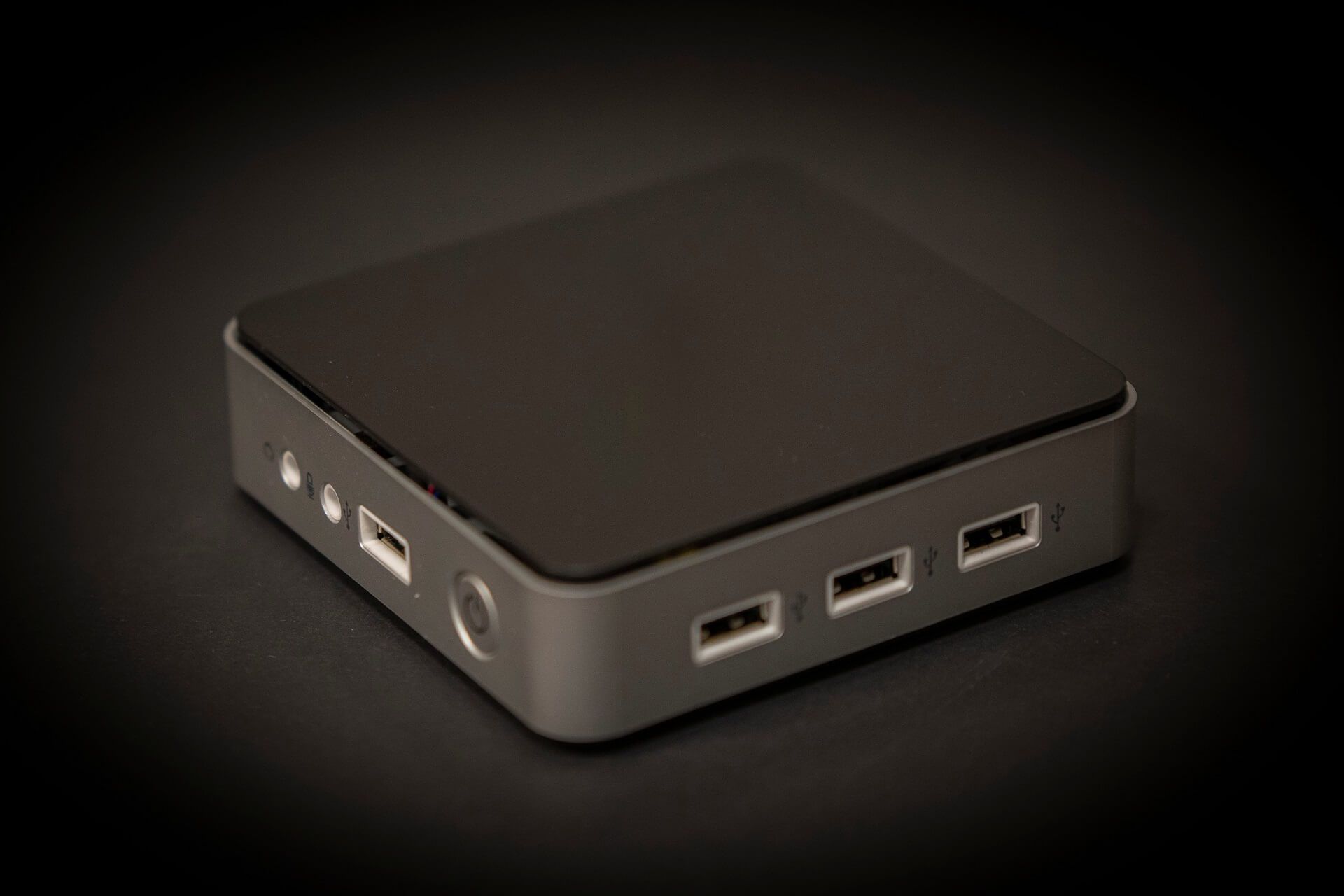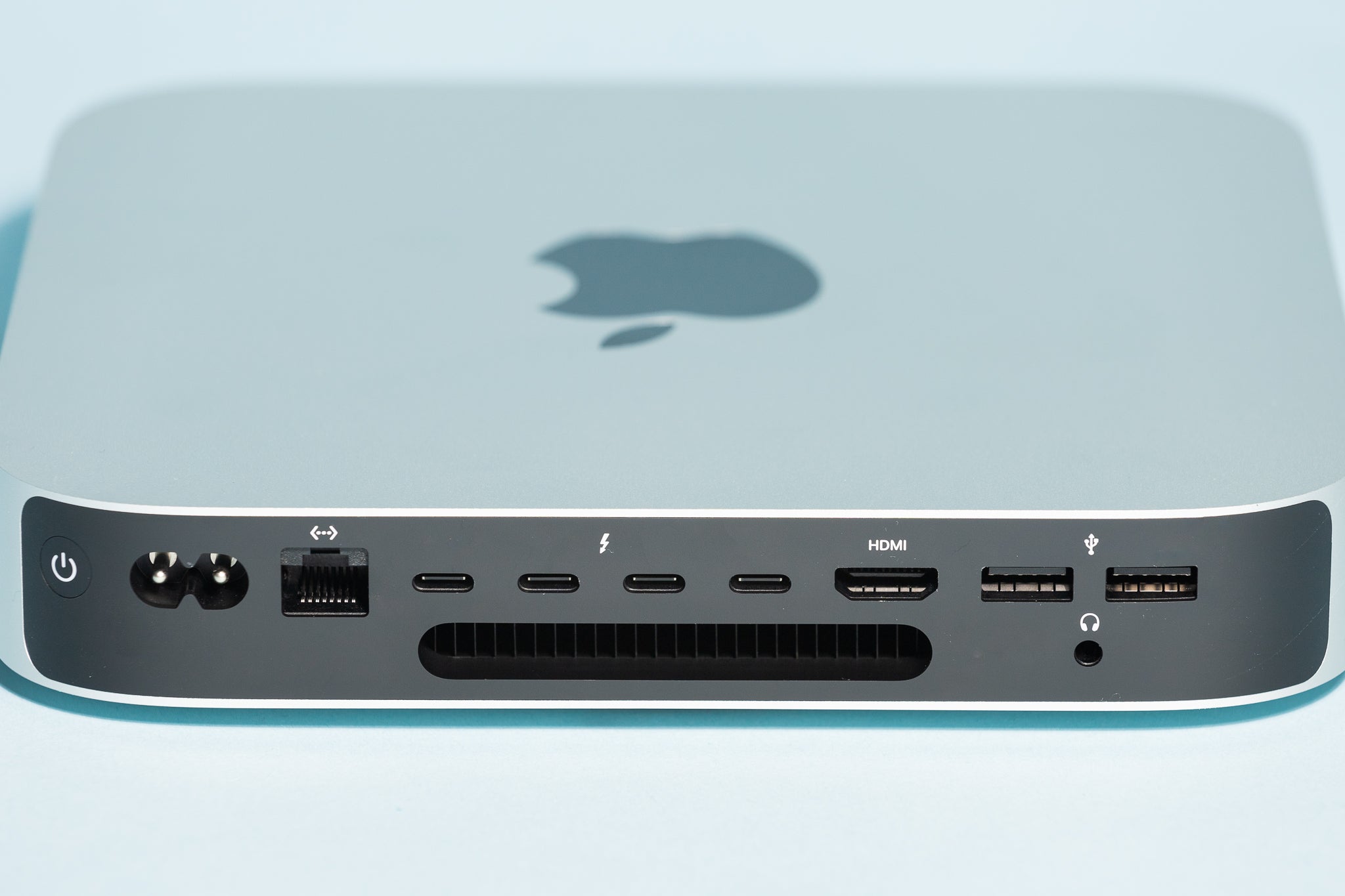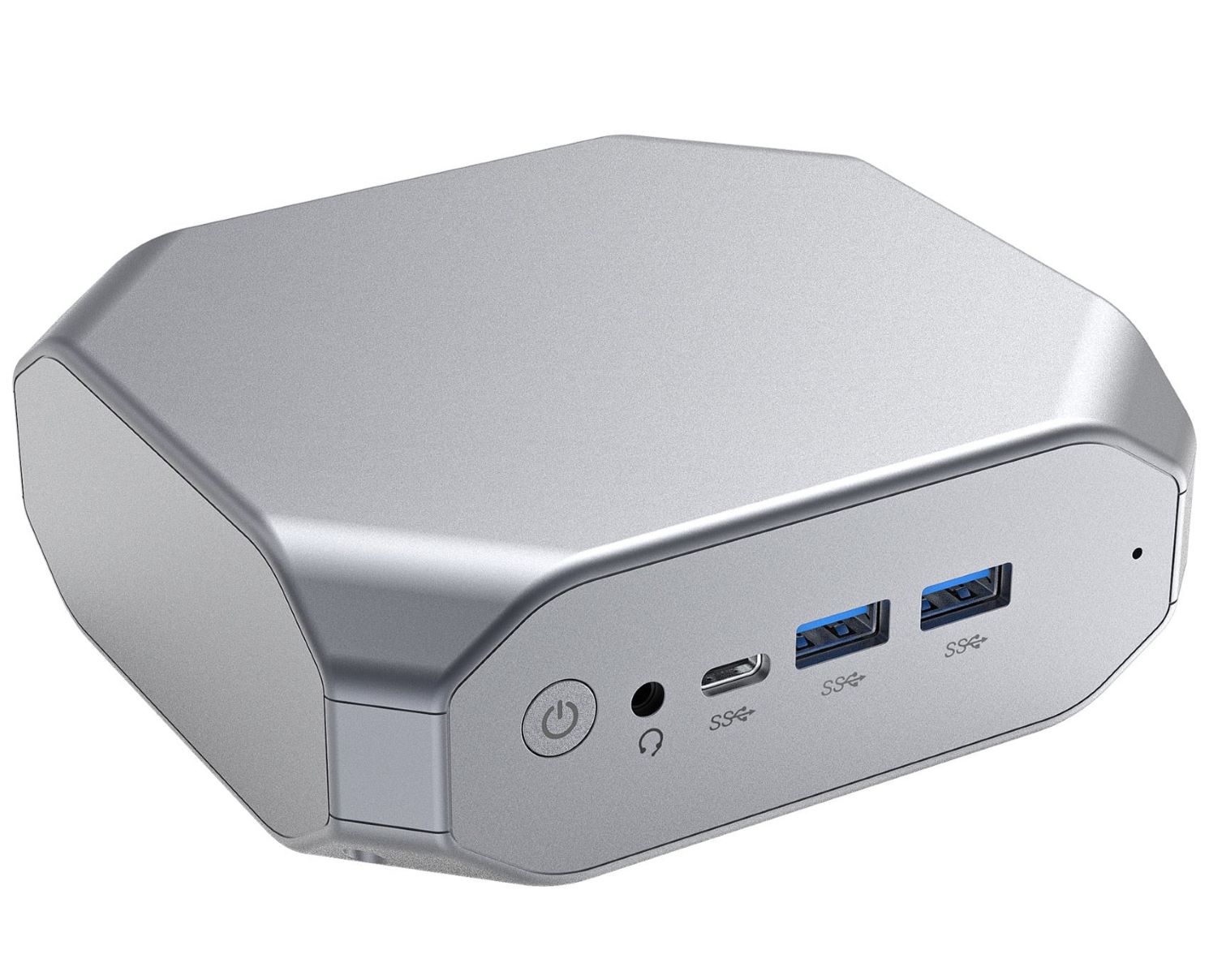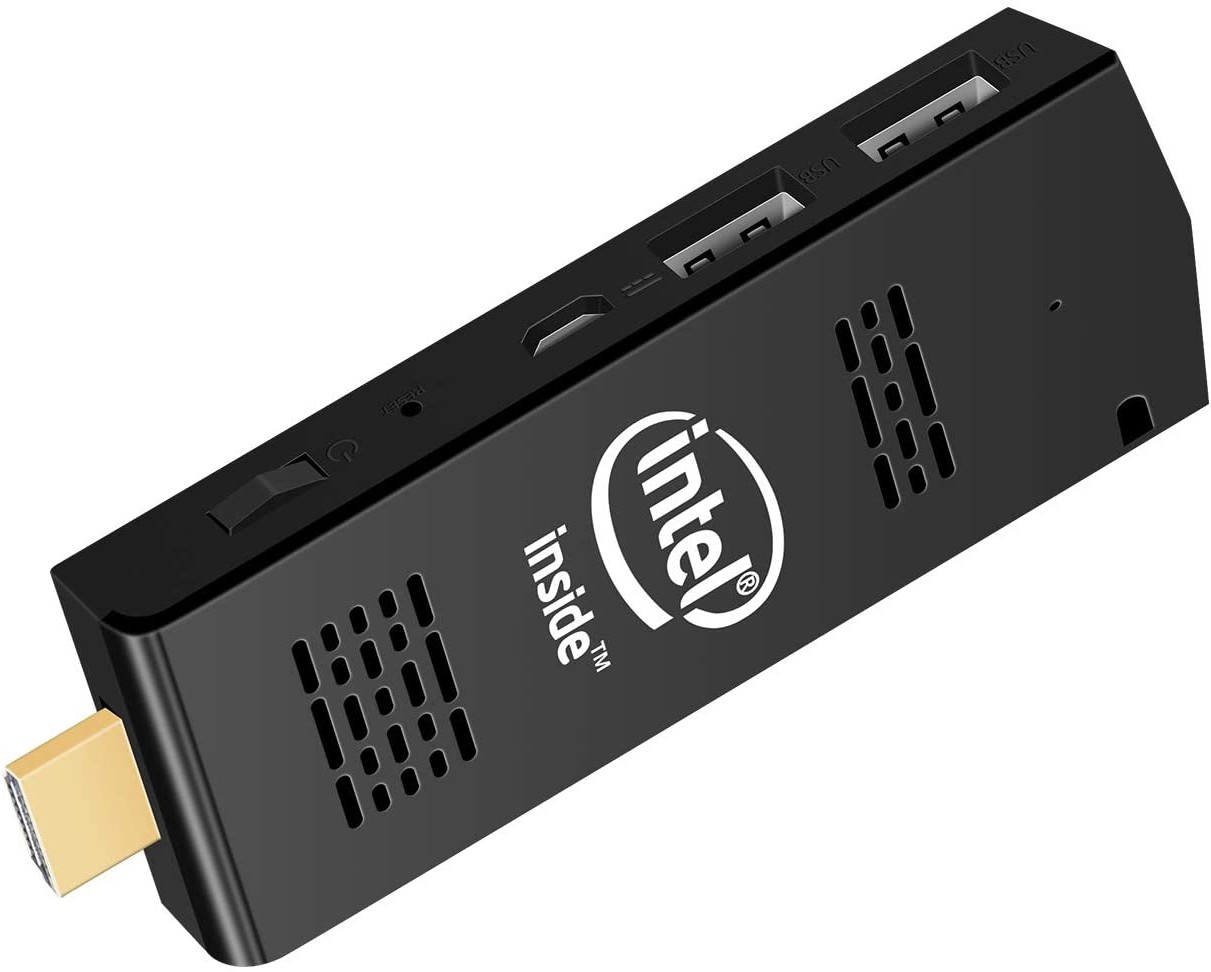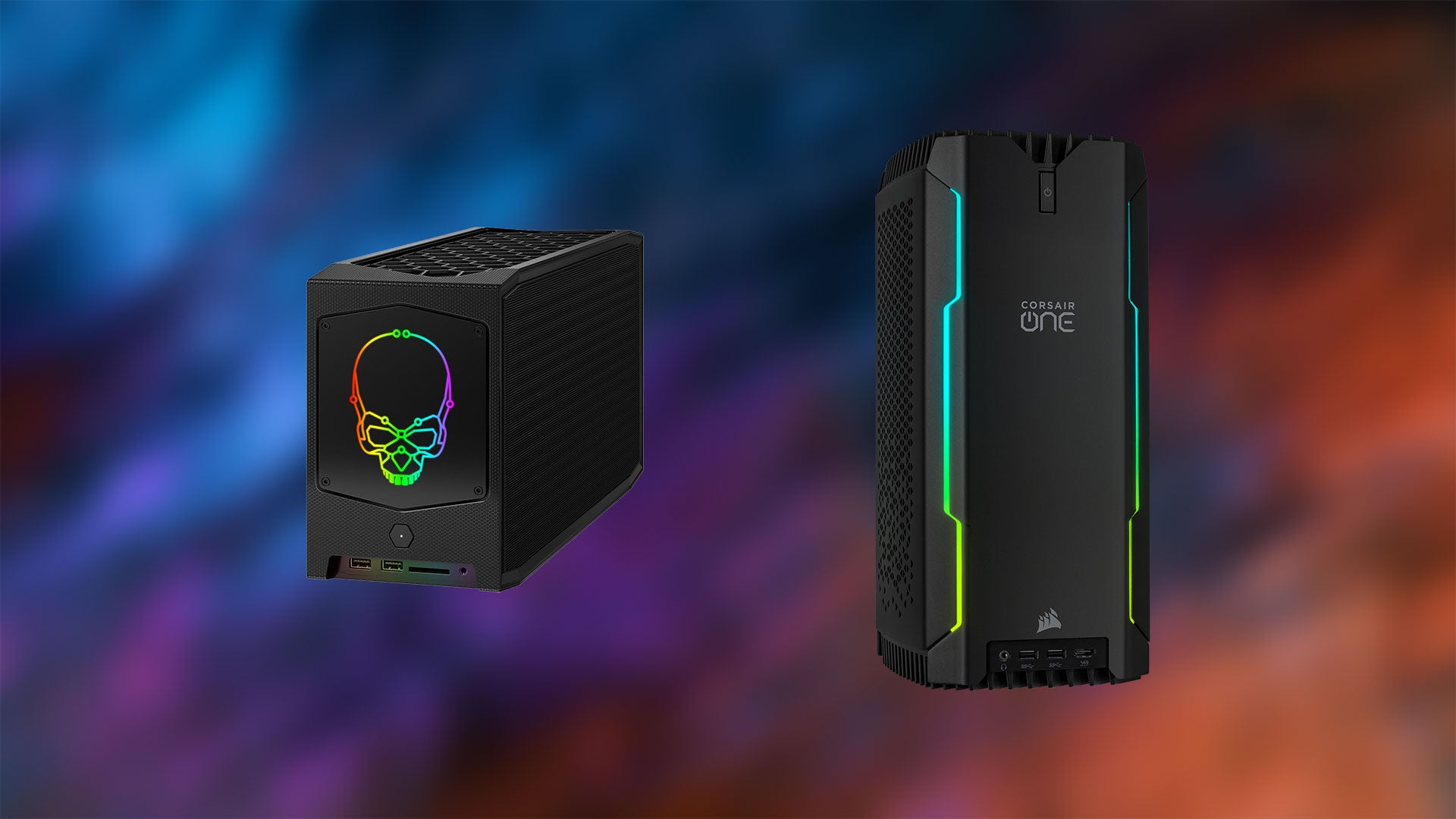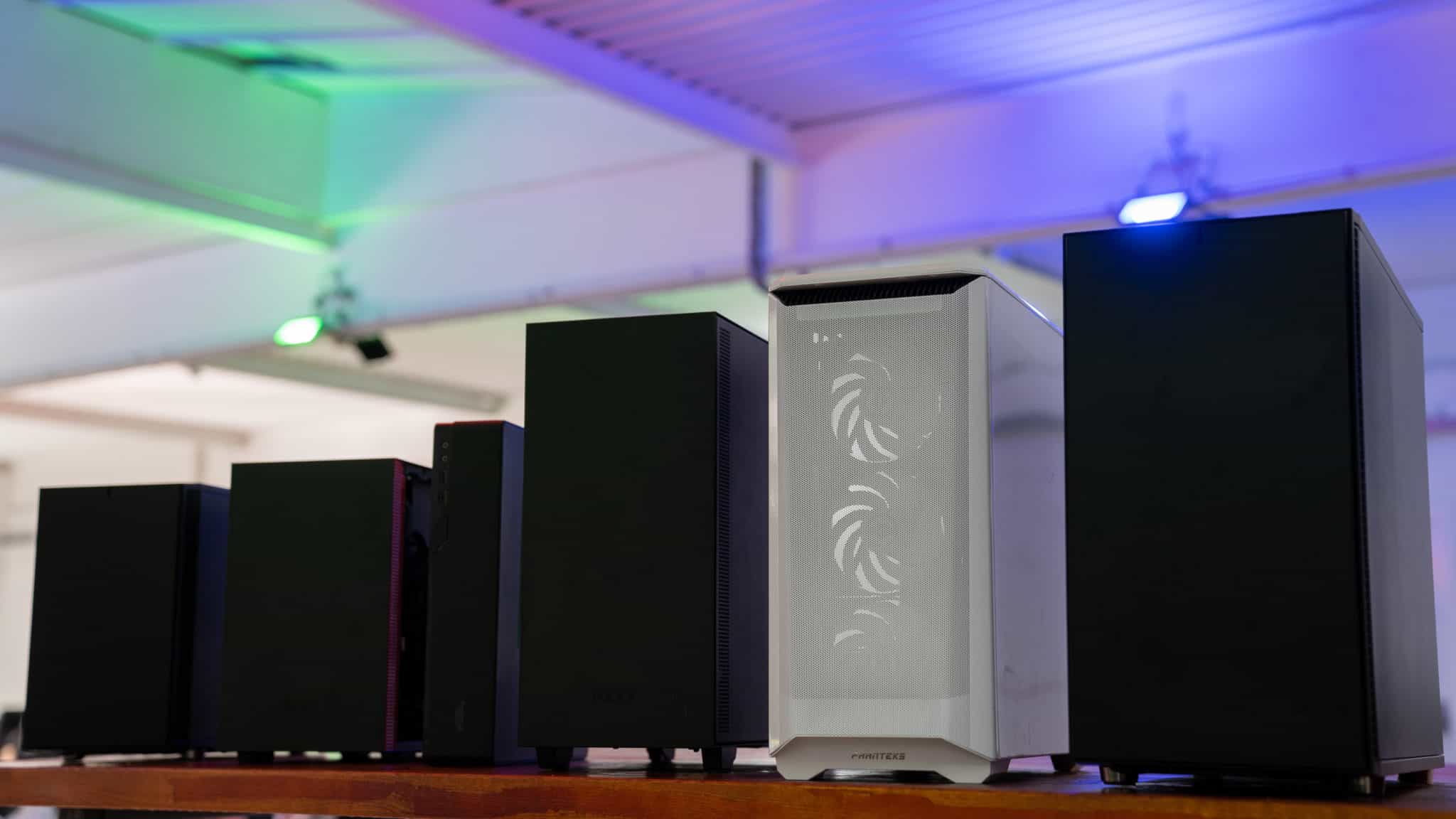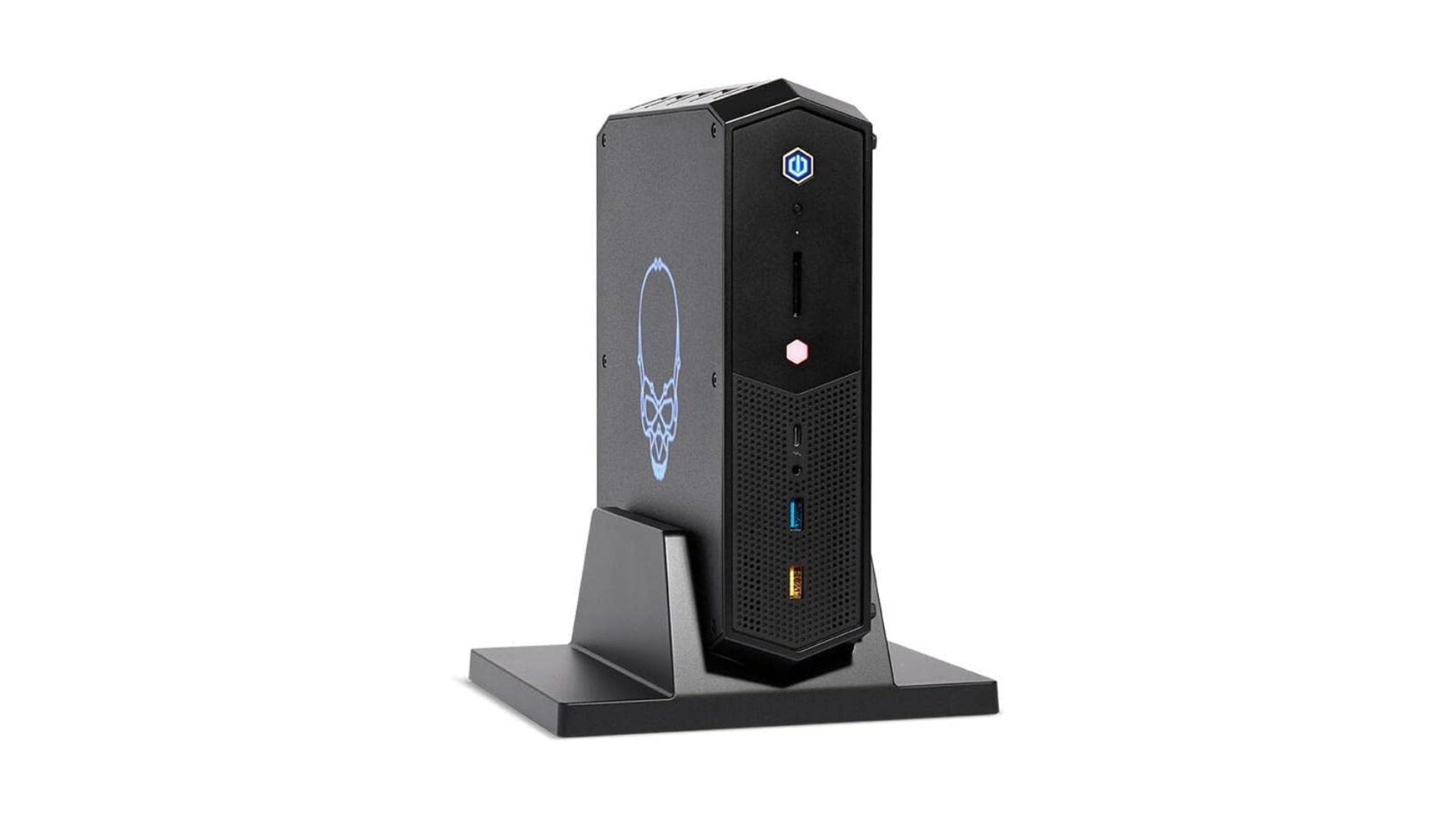What Is a Mini PC?
A mini PC, also known as a small form factor (SFF) computer, is a compact-sized computer that offers the functionality of a full-sized desktop or laptop in a much smaller package. These miniature devices are designed to save space without compromising on performance, making them ideal for various applications where space is limited.
Mini PCs come in different shapes and sizes, but they are generally smaller than traditional desktop computers and can easily fit in the palm of your hand. Despite their compact design, mini PCs are equipped with powerful hardware components that allow them to handle a wide range of tasks.
One of the key features of mini PCs is their portability. Their small size and lightweight design make them easy to carry and transport, making them popular among travelers, students, and professionals who are constantly on the go.
Mini PCs are available in various form factors, including mini-tower, compact, and stick. These different form factors allow users to choose a mini PC that best fits their specific needs and requirements.
Mini PCs can be used for a wide range of purposes, including office work, multimedia playback, gaming, home automation, and more. With the advancement in technology, mini PCs now offer performance capabilities similar to traditional desktop computers, allowing users to run resource-intensive applications without any issues.
Despite their advantages, mini PCs do have some drawbacks. Due to their compact size, they may have limited upgradeability options compared to their larger counterparts. Additionally, the smaller form factor may lead to higher temperatures and may require additional cooling mechanisms to keep the system running optimally.
Overall, mini PCs are an excellent option for users who prioritize space-saving and portability without compromising on performance. With their compact design and powerful capabilities, mini PCs have become a popular choice in various industries and applications.
Size and Form Factors
Mini PCs come in a variety of sizes and form factors, allowing users to choose the one that best suits their needs and space constraints. Here are some common sizes and form factors found in mini PCs:
- Mini-Tower: Mini-tower mini PCs are larger in size compared to other form factors. They offer more room for expandability, including additional hard drives, graphics cards, and other components. While they may not be as compact as other options, they provide excellent performance and flexibility.
- Compact: Compact mini PCs strike a balance between size and performance. They are smaller in size compared to mini-tower models but still offer decent performance capabilities. Compact mini PCs are suitable for home offices, multimedia streaming, and light gaming.
- Stick: Stick mini PCs are the smallest form factor available in the market. Resembling USB thumb drives, these tiny devices can be directly plugged into a monitor or TV’s HDMI port. While they may lack some performance features, they are perfect for basic computing tasks and media playback.
The size and form factor of a mini PC can determine its capabilities and suitability for different applications. If you need room for expansion and performance-intensive tasks, a mini-tower form factor might be the best choice. On the other hand, if you prioritize portability and have limited space, a compact or stick form factor may be more suitable.
Some mini PCs also come with interchangeable modules that allow users to customize the hardware configuration as per their requirements. These modular mini PCs provide flexibility and ease of upgrading, making them an attractive option for tech enthusiasts and professionals who need to adapt to changing demands.
Overall, the size and form factor of a mini PC play a crucial role in determining its functionality and purpose. Whether you need a powerful workstation or a portable entertainment device, the wide range of sizes and form factors available in mini PCs ensures that you can find the perfect fit for your needs.
Performance and Functionality
Despite their compact size, mini PCs are equipped with impressive hardware components that deliver reliable performance for various tasks. Here are some aspects to consider when it comes to the performance and functionality of mini PCs:
- Processor: Mini PCs are powered by a range of processors, including Intel Core i3, i5, and i7, as well as AMD Ryzen processors. These processors ensure smooth multitasking, efficient power consumption, and the ability to handle demanding applications.
- Memory: RAM (random access memory) plays a crucial role in a system’s performance. Mini PCs typically offer a range of RAM options, ranging from 4GB to 16GB or more. Higher RAM capacity enables smoother multitasking and faster data processing.
- Storage: Mini PCs come with various storage options, including solid-state drives (SSD) and hard disk drives (HDD). SSDs provide faster boot times and quicker file access, while HDDs offer more storage capacity at a lower cost.
- Graphics: Mini PCs feature integrated graphics or dedicated graphics cards, depending on the model. Integrated graphics are suitable for everyday tasks and multimedia playback, while dedicated graphics cards are essential for gaming and graphics-intensive applications.
- Connectivity: Mini PCs come equipped with a wide range of connectivity options, including USB ports, HDMI ports, Ethernet ports, Wi-Fi, Bluetooth, and more. These connectivity options ensure seamless integration with various peripherals and networking devices.
Mini PCs offer functionality beyond just basic computing. With the right configuration, they can be used as media centers, gaming consoles, home automation hubs, and even as servers for small-scale businesses. Some mini PCs also support dual displays, making them suitable for professionals who require a multi-monitor setup for enhanced productivity.
In terms of operating systems, mini PCs are compatible with both Windows and Linux, allowing users to choose the operating system that suits their needs and preferences.
It’s important to note that the performance and functionality of a mini PC will vary based on its specifications. Higher-end models with more powerful components will be capable of handling resource-intensive tasks with ease, while entry-level models are better suited for basic computing needs.
Overall, mini PCs offer impressive performance and functionality in a compact form factor. Whether you need a mini PC for everyday use, multimedia streaming, gaming, or professional work, there is a wide range of options available to cater to your specific needs.
Uses and Applications
Mini PCs have a wide range of uses and applications, thanks to their versatility and compact design. Here are some common ways in which mini PCs are utilized:
- Home Entertainment: Mini PCs can serve as dedicated media centers, allowing you to stream movies, TV shows, and music directly to your TV or monitor. With their compact size and powerful hardware, they provide an excellent alternative to bulky home theater setups.
- Home Office: Mini PCs are perfect for home offices or small businesses where space is limited. They offer all the functionality of a traditional desktop computer, including word processing, spreadsheet management, email handling, and video conferencing.
- Gaming: Gaming enthusiasts can benefit from mini PCs equipped with dedicated graphics cards. While they may not match the performance of high-end gaming rigs, they are capable of running a wide range of games, making them ideal for casual gamers or those with limited space.
- Education: Mini PCs are popular in educational settings, such as classrooms and training centers. Their compact size makes them easy to deploy and store, while their performance capabilities allow students to run educational software and access online resources efficiently.
- Digital Signage: Mini PCs are commonly used to power digital signage displays in businesses, retail stores, and public spaces. With their small form factor, they can be mounted behind the display or discreetly placed to deliver eye-catching content to customers.
- Point-of-Sale (POS) Systems: Mini PCs are an excellent choice for small businesses that require a compact and efficient point-of-sale system. They can be easily integrated with barcode scanners, cash registers, and other peripherals to streamline sales processes.
Aside from these common applications, mini PCs are also used in industries such as hospitality, healthcare, industrial automation, and research. They provide a cost-effective solution that meets the computing needs of various sectors.
Additionally, mini PCs are a popular choice for DIY enthusiasts who enjoy building their systems. With their small form factor and modular capabilities, they allow for customization and personalization of hardware configurations.
Overall, the uses and applications of mini PCs are diverse and far-reaching. Their compact design, powerful performance, and versatility make them an attractive option for various industries and individuals with different computing needs.
Advantages and Drawbacks
Mini PCs offer several advantages and drawbacks compared to traditional desktop computers. Understanding these pros and cons can help you make an informed decision when considering a mini PC. Here are some key advantages and drawbacks:
Advantages:
- Space-Saving: The compact size of mini PCs is a significant advantage, especially in environments where space is limited. They can be easily placed on a desk, mounted behind a monitor, or tucked away in small spaces.
- Portability: Mini PCs are lightweight and portable, making them ideal for users who need a computer on the go. Whether you’re a traveler, student, or professional, a mini PC allows you to have your computing power with you wherever you go.
- Energy-Efficient: Mini PCs are designed to be energy-efficient, consuming less power compared to larger desktop counterparts. This not only helps reduce energy costs but also contributes to minimizing environmental impact.
- Cost-Effective: Mini PCs are generally more affordable than traditional desktop computers, making them a cost-effective option. They offer a good balance between performance and price, making them accessible to a wide range of users.
- Versatility: Mini PCs can be used for various purposes, including office work, media playback, gaming, and more. Their performance capabilities allow them to handle a wide range of tasks, making them versatile devices.
Drawbacks:
- Limited Upgrade Options: Due to their compact form factor, mini PCs may have limited upgradeability compared to larger desktop computers. Upgrading components such as graphics cards or processors may be more challenging or even impossible, depending on the specific model.
- Heat Management: Mini PCs, especially those with powerful hardware, tend to generate more heat due to their small size and limited airflow. Proper cooling mechanisms are essential to prevent overheating and ensure optimal performance.
- Smaller Peripheral Compatibility: Mini PCs may have limited connectivity options and ports compared to traditional desktop computers. This can sometimes create challenges when connecting multiple peripherals or devices simultaneously.
- Hardware Limitations: Although mini PCs offer remarkable performance considering their size, they may not match the capabilities of high-end desktop computers. This can limit their potential for resource-intensive tasks and demanding applications.
Considering these advantages and drawbacks will help you determine if a mini PC suits your specific needs and requirements. It is essential to weigh the benefits against the limitations to ensure that a mini PC aligns with your computing expectations.
Buying Guide
When shopping for a mini PC, there are several factors to consider to ensure you make the right purchase decision. Here’s a buying guide to help you choose the best mini PC for your needs:
1. Purpose and Usage:
Identify how you plan to use the mini PC. Determine if you need it for everyday tasks, gaming, multimedia, or specific professional applications. This will help you narrow down your options and prioritize the necessary specifications.
2. Performance:
Consider the processor, memory, and storage capabilities of the mini PC. Opt for a powerful processor and sufficient RAM if you need to run resource-intensive applications. SSD storage will provide faster boot times and smoother operation, but if you require more storage capacity, consider a model with an HDD or hybrid storage option.
3. Connectivity:
Check the connectivity options provided by the mini PC. Ensure it has the necessary ports like USB, HDMI, Ethernet, and audio jacks for your specific needs. If you require wireless connectivity, verify if it supports Wi-Fi and Bluetooth.
4. Graphics:
Determine whether you need a mini PC with integrated graphics or a dedicated graphics card. Integrated graphics are suitable for everyday tasks and multimedia playback, while dedicated graphics cards are essential for gaming and graphics-intensive applications.
5. Form Factor:
Consider the size and form factor of the mini PC. Choose a form factor that fits your available space and desired portability. Mini-tower models offer better upgradability, while compact or stick models are more space-saving and portable.
6. Modular Design:
Some mini PCs feature a modular design that allows for hardware customization and upgrades. If you anticipate changing hardware needs in the future, consider a modular mini PC that offers flexibility for future enhancements.
7. Budget:
Set a budget for your mini PC purchase. Determine the maximum amount you are willing to spend and look for options that offer the best value for your money without compromising on the necessary specifications.
Reading reviews and comparing different models from reputable brands will also provide valuable insights into the performance, reliability, and user experience of mini PCs.
By considering these factors and understanding your requirements, you can make an informed decision and choose the mini PC that best aligns with your needs and budget.
Top Mini PC Models
When it comes to mini PCs, there are several models available in the market that offer impressive performance and functionality. Here are some of the top mini PC models worth considering:
1. Intel NUC (Next Unit of Computing)
The Intel NUC is a popular choice among mini PC enthusiasts. It offers various models with different processors, memory capacities, and storage options. The NUC is highly customizable, allowing you to choose the specifications that suit your needs best.
2. ASUS VivoMini
The ASUS VivoMini series offers compact and powerful mini PCs suitable for home and office use. They feature Intel processors, ample memory, and storage options, as well as various connectivity ports. The VivoMini series provides reliable performance with a sleek design.
3. HP EliteDesk Mini
The HP EliteDesk Mini provides a blend of performance, security, and manageability. It offers various configuration options, including powerful processors, generous memory capacity, and fast storage solutions. The EliteDesk Mini is designed to meet the demands of business professionals.
4. Lenovo ThinkCentre M Series Tiny
The Lenovo ThinkCentre M Series Tiny mini PCs are known for their rugged build quality and powerful performance. They feature Intel processors, ample RAM, and a range of storage options. The ThinkCentre M Series Tiny is a reliable choice for both office and home use.
5. Zotac ZBOX Magnus Series
The Zotac ZBOX Magnus series caters to gaming and multimedia enthusiasts. These mini PCs come equipped with powerful processors, dedicated graphics cards, and ample memory for smooth gaming and multimedia experiences. The Magnus series offers a compact and stylish design with a focus on performance.
6. Gigabyte BRIX
The Gigabyte BRIX mini PC series offers a wide range of models, catering to various needs and budgets. These mini PCs feature powerful Intel processors, expandable memory, and flexible storage options. The BRIX series is known for its compact design and versatility.
These are just a few examples of the top mini PC models available. Remember to consider your specific requirements, budget, and desired specifications when choosing the best mini PC for your needs. Reading reviews and comparing different models can provide further insights to help you make an informed decision.
Conclusion
Mini PCs have revolutionized the way we think about computing, offering powerful performance in a compact form factor. These small devices have gained popularity due to their space-saving design, portability, and versatility. Whether you’re a student, professional, gamer, or someone with limited space, mini PCs provide a practical solution for various computing needs.
In this article, we explored what mini PCs are and their key features. We discussed the different sizes and form factors available, allowing users to choose the one that best suits their requirements. We also delved into the performance and functionality of mini PCs, highlighting the importance of considering factors such as processors, memory, storage, and connectivity.
Furthermore, we examined the uses and applications of mini PCs, showcasing their versatility in various areas, including home entertainment, home offices, gaming, education, digital signage, and point-of-sale systems. We also discussed the advantages and drawbacks of mini PCs, allowing potential buyers to make an informed decision.
Lastly, we provided a brief buying guide to help readers navigate the process of selecting the right mini PC for their needs. From considering the purpose and usage to assessing performance, connectivity, and form factor, these factors play a crucial role in finding the mini PC that aligns with your specific requirements and budget.
With a wide range of top mini PC models available in the market, including the Intel NUC, ASUS VivoMini, HP EliteDesk Mini, Lenovo ThinkCentre M Series, Zotac ZBOX Magnus, and Gigabyte BRIX, users have an array of choices to find the perfect fit for their computing needs.
In conclusion, mini PCs offer a compact yet powerful computing solution for a variety of applications. Their small size, portability, versatility, and impressive performance make them an excellent alternative to traditional desktop computers. By understanding your needs, considering the options available, and making an informed decision, you can find the mini PC that serves as the perfect companion for your computing journey.







